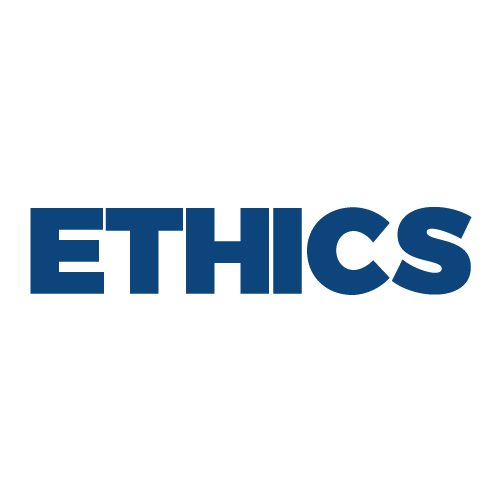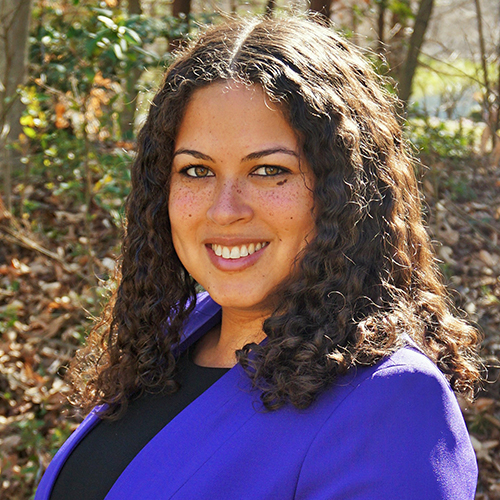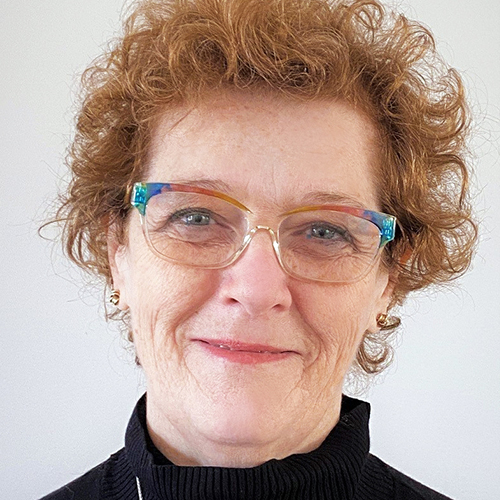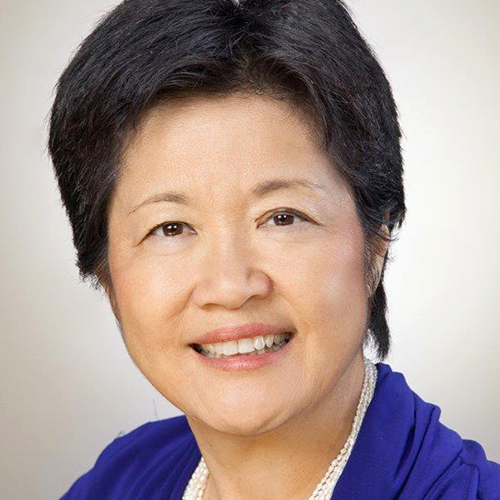
Clinical Ethics for Lactation Professionals
This lecture series provides the latest thought provoking information from prominent experts in the field of lactation ethics. Jessica Lee, Kathy O'Grady Venter, Lisa Amir, Indra Wood Lusero and Pauline Sakamoto share their knowledge and wisdom as they teach us about ethically guiding clients through workplace barriers, lactation ethics in everyday practice, ethical issues in the use of medications during lactation, human rights during birth and lactation and ethical issues in milk sharing and milk banking.
This lecture pack is approved for 5 E-CERPs.
Looking to sign up with a Group? Contact us at [email protected] to learn more or submit your group registration.


Jessica Lee is a Staff Attorney at the Center for WorkLife Law, and co-founder of the Center’s Nursing Mothers Law Project. She works to advance gender equality in the workplace and in education, and is a nationally recognized expert on discrimination related to pregnancy and breastfeeding. Lee has provided know-your-rights resources and training on workplace supports for breastfeeding to thousands of healthcare providers, public health practitioners, and employers. She also seeks to prevent discrimination by working with institutions to draft and implement family-responsive policies.
Lee’s writing has been featured in publications ranging from Harvard Business Review and The Chronicle of Higher Education to the journals Breastfeeding Medicine and Midwifery and Women’s Health. She is a co-author of the study, Exposed: Discrimination Against Breastfeeding Workers.
Objective 1. Participants will describe the needs of their clients in the workplace.
Objective 2. Participants will be able to describe an IBCLC’s potential role in supporting lactating workers through client education.
Objective 3. Participants will be able to summarize the legal protections for expressing milk at work, when to ask for help, and where to go for assistance.
Objective 4. Participants will be able to write effective workplace accommodation notes for lactating clients.
Objective 5. Participants will be able to apply their knowledge to real-world situations.
One of the most challenging experiences on a parent’s lactation journey is managing return to work. When lactating workers have access to both time and space for expressing breast milk, they are more likely to meet their breast/chestfeeding goals, yet many struggle to access these simple accommodations. Participants will gain an understanding of how workplace conditions influence lactation, become familiar with key legal principles protecting lactating parents in the workplace, and, learn strategies to ethically support their clients in reducing workplace barriers to continued lactation.


Kathy O'Grady Venter is a registered nurse and retired midwife. She has been an International Board Certified Lactation Consultant (IBCLC) since 1990.
Kathy is a WHO|UNICEF trained BFHI Assessor and Trainer (1991) through IBFAN Africa and currently she is a CoChair of the BFI assessment committee of the Breastfeeding Committee for Canada (BCC), BFI Lead Assessor – BCC Baby Friendly Initiative (BFI) Assessment Committee, Lactation consultant Sunnybrook Health Sciences Centre in Toronto and Breastfeeding educator and BFI consultant.
In the past, Kathy has been Chair for the BCC, Chair of the BFI assessment/education committee of the Baby Friendly Initiative Ontario and the recipient of the Canadian Lactation Consult Association Award for Clinical Excellence.
Objective 1. Describe the ethical obligations of the IBCLC
Objective 2. Identify potential ethical issues in everyday clinical situations
Objective 3. Describe how ethical dilemmas can be managed in clinical practice
Approaching clinical care in an ethical manner is a core component of providing care as an IBCLC. Sometimes however, it can be hard to figure out what the ethical response is during everyday practice. Through the lens of clinical scenarios, this presentation encourages delegates to think critically about ethical practice and raises awareness of potential inconsistencies in care and subtle ethical issues which are sometimes overlooked. Learn more about your ethical responsibilities and ways to manage ethical dilemmas in clinical practice.


Professor Lisa Amir is a general practitioner and has been an International Board Certified Lactation Consultant since 1989. She is the author of over 120 peer-reviewed articles on breastfeeding. She works in breastfeeding medicine at The Royal Women’s Hospital in Melbourne, Australia. She is a Principal Research Fellow at Judith Lumley Centre, La Trobe University and is the Editor-in-Chief of the open access journal, International Breastfeeding Journal.
Topic: Ethical Issues in the Use of Medications During Lactation - [View Abstract]
Topic: Taking a Lactation History: From Pregnancy to Postpartum and Beyond - [View Abstract]
Topic: Urban Design Solutions to Support Breastfeeding in Public - [View Abstract]
Objective 1. Describe the implications of excluding women from clinical trials.Objective 2. Describe the ethical issues relevant to medication use during lactation.Objective 3. Use a shared decision-making approach when working with breastfeeding families.
Public health ethics relates to moral implications of activities aimed at maintaining and improving population health. Public health researchers embrace participation of affected populations in all stages of research from design to translation. In the past, pharmaceutical companies have avoided the issue of women’s reproductive life and excluded pregnant and breastfeeding women from the drug development process and then advised prescribers to avoid their medications in pregnancy and lactation. Therefore, when clinicians need to prescribe medications during lactation, they do this off-label, often without evidence or guidance regarding optimal dosing or treatment recommendations. Application of the concept of equity should ensure that all groups, including breastfeeding parents, are not neglected and receive directly targeted interventions to improve their health outcomes. The ethical frame which routinely excluded participants who may be pregnant or lactating from clinical trials, is now being turned around to recognise that these groups have the right to be included.


Pauline Sakamoto's nursing career in milk banking started as a volunteer donor to the Mothers’ Milk Bank in San Jose 35 years ago. Previously, she worked at the County Health Department of San Bernardino as a Public Health Nurse in the largest county in the US covering the Hi Desert. She was also employed by the CA State Department of Health, Fiscal Intermediary Management Division for Medi-Cal. Her experience with the nonprofit San Jose Milk Bank for 35 years included processing and operations, the screening of donors and dispensing of donor human milk for inpatient and outpatient services, administration of the San Jose Mothers’ Milk Bank for over 20 years and concurrently leadership roles in the Human Milk Banking Association of North America. Currently, she serves on multiple committees within HMBANA regarding policies and standards, auditing member banks, and reviews legislative and state statutes on milk banking and lactation. She has been representing HMBANA at the US Breastfeeding Committee for over 9 years and served on the Board of USBC for 6 years. Internationally, in 2012-14, she served on PATH’s Milk Banking Policy Group and continues to work internationally on issues on processing and safety. She has stepped down from the Executive Director position at the Milk Bank in 2019 but continue to pursue her passion on milk banking (half time in the office) and Lactation.
1. Discuss the pros and cons of reimbursement to mothers for their human milk.
2. Describe what requirements are necessary to define human milk as "safe milk".
3. Discuss barriers to Equity and Access of donor human milk.
This session will explore the ethical issues of milk collection, priority use and distribution. Currently, there are limited regulations and cultural norms regarding human milk. Is it a human tissue or food? Is human milk a commodity? How does this relate to the treatment of women and their infants? What is the current status of access to human milk and equity of services? What does “safe milk” mean? This session is to explore the current condition of ethical issues surrounding human milk, “liquid gold”…the panacea for life for the most vulnerable in our society.


Indra Lusero is founder of Elephant Circle and the Birth Rights Bar Association. As a Queer, Genderqueer, Latinx parent rooted in the Rocky Mountain West, Indra is attuned to the importance of people on the margins and our role in leading the dismantling of oppressive systems to build a more equitable world. Indra helped pass legislation in Colorado to eliminate the shackling of incarcerated women during pregnancy and birth, to improve midwifery and birth center regulations, and to create more humane policies for families impacted by substance use. Indra also spearheaded the creation of "Birth Rights: A resource for everyday people to defend human rights during labor and birth.
Objective 1. Recognize human rights documents and principles that protect people in the perinatal period.
Objective 2. Empower birth and lactation providers to see themselves as human rights defenders.
Objective 3. Gain familiarity with accountability tools and strategies.
Human rights violations related to childbearing are an international phenomenon. Such violations have only recently been recognized by organizations like the World Health Organization and the United Nations, and avenues for accountability and redress remain limited across the globe. Nonetheless, empowering health care providers, including lactation professionals, with the confidence and courage to be human rights defenders is a critical step in vanquishing these harms and protecting people from conception through lactation.
Accreditation
CERPs - Continuing Education Recognition Points
GOLD Conferences has been designated as a Long Term Provider of CERPs by the IBLCE--Approval #CLT114-07. This program has been approved for 5 CERPs (5 E-CERPs).
IBCLC Detailed Content Outline:
I. Development and Nutrition 1 CERP
IV. Pharmacology and Toxicology 1 CERP
V. Psychology, Sociology and Anthropology 1 CERP
VII. Clinical Skills 4 CERPs
Additional Details
Apply E-CERPs towards your IBCLC Recertification Requirements.
Tags / Categories
(IBCLC) Clinical Skills, (IBCLC) Education and Communication, (IBCLC) Ethical and Legal Issues, (IBCLC) Infant, (IBCLC) Pharmacology and Toxicology, (IBCLC) Psychology, Sociology, and Anthropology, (IBCLC) Public Health and Advocacy, (IBCLC) Research, Ethics for Lactation Professionals
How much time do I have to view the presentations?
- The viewing time will be specified for each product. When you purchase multiple items in your cart, the viewing time becomes CUMULATIVE. Ex. Lecture 1= 2 weeks and Lecture Pack 2 = 4 Weeks, you will have a total of 6 weeks viewing time for ALL the presentations made in that purchase.
- Time for viewing the talks begins once you purchase the product. For Live Webinars & Symposiums, the viewing period begins from when the live event takes place. Presentations can be accessed 24/7 and can be viewed as many times as you like during the viewing period.
What are bundled lectures?
- Presentations may be available individually or via a bundled package. Bundled lectures are a set of lectures that have been put together based on a specific category or topic. Some lectures will be available in both individual and lecture form, whereas others will be available only via a bundled lecture pack.
Will there be Handouts?
- YES! Each lecture comes with a PDF handout provided by the Speaker.
Some lectures include a Q&A, what does that mean?
- During our online conferences, presentations that occur live are also followed by a short 15 minute Question & Answer Session. The Speaker addresses questions that were posted by Delegates during the presentation. We include the recording of these Q&A Sessions as a bonus for you.
How can I receive a Certificate?
- If this presentation offers a certificate, once you are done viewing the lecture or the lectures within a bundle, submit your attendance record in order to be able to download your certificate. You'll be able to see which credits are offered for the lecture by hovering over the "Credits Available" link within the "Speakers & Topics" tab.
Professionals that selected this package also viewed

|
|

|









